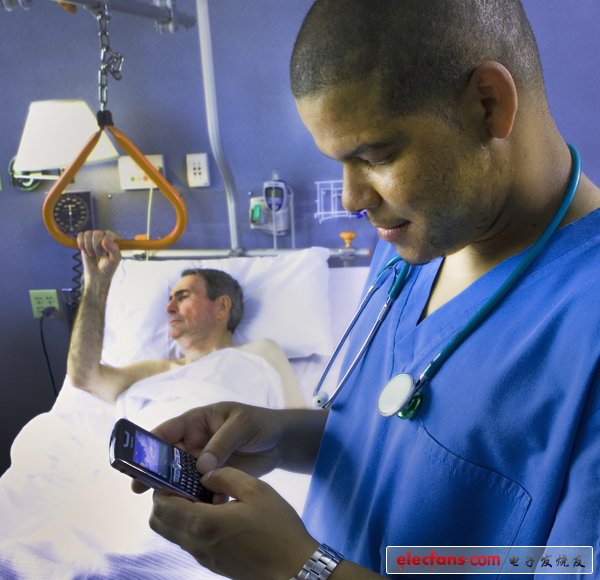Electronic enthusiasts news : With the perfect combination of mobile imagination and medical needs, mobile medical is becoming the next "gold mine" in the communications industry. For mobile operators, medical device manufacturers, chip companies, and application developers, mobile healthcare is undoubtedly a "sunrise industry" with great potential, and it has also attracted many entrepreneurs and investors. The world-famous GSM Association (GSMA) announced that mobile technology will play an important role in global healthcare services, and predicts that by 2017, the development of the mobile medical market will bring in 23 billion US dollars in revenue. 2013 has come, what new trends will mobile medical have? Let's discuss together.
Digital human body : I have seen friends on many different occasions wearing a pedometer, or talking about how much weight I lost after using the pedometer. The sensors on the mobile phone can always record our movement, heartbeat, body temperature, sleep and even emotions. Genetic technology can detect everyone's "factory settings". In a sense, the human body is increasingly digitized. This brings us two major challenges: 1. How to analyze, process and feedback these data; 2. How to use these data in hospitals, doctors and insurance. Perhaps in the not-too-distant future, when you turn on the computer, not only will 360 tell you the health of the computer, but 460 will tell you the body score.

More doctors use mobile applications : The core of the medical system is doctors. Medicine is an industry with highly complex information and processes, and doctors are the center of information flow. The mobile Internet makes information readily available anytime, anywhere, and it will definitely change the work of doctors. More than 80% of doctors in the United States have used work-related applications. In 2012, the growth rate of medical applications in the Apple Store ranked third. Many years later, smartphones may change doctors' work like microscopes or stethoscopes. Doctors' time should be spent more on communicating with patients, thinking and solving problems, rather than memorizing and querying information. Next time you see a doctor, do n’t be surprised if you find your doctor looking down at your phone.

Mobile HIS : More and more hospitals are beginning to equip hospital information systems (HIS). The pad and mobile versions of HIS are also appearing more and more in hospitals. In the United States, pushing a computer for ward rounds has been replaced by ward rounds with an iPad (or mini pad). China's major hospitals should not be far from this day. Some hospitals even have client-side clients, allowing patients to download their own test orders and other test results. In 2013, the hospital information system should become more and more mobile.
Mobile management of chronic diseases: Chronic diseases have become China's biggest health challenge in the next 20 years. Diseases such as diabetes, hypertension, and insomnia each affect hundreds of millions of people, and their awareness and control rates are low. Every disease will be a market of hundreds of billions. These diseases need to regularly monitor certain physiological parameters and adjust life and treatment accordingly, so they are very suitable for mobile + cloud services. The personalization of services and the authority of information are two important thresholds. In the United States, a diabetes service provided by a company like Welldoc has received FDA certification, has been validated in clinical trials, and has received orders from insurance companies. China should have similar services soon.
WeChat + Medical : "You use it or not, love it or not, WeChat is there." In 2012, WeChat had "flew into the home of ordinary people". We can ask directions, check the weather, and find restaurants on WeChat. With 300 million users and a nearly 100% arrival rate, no one will ignore this behemoth as a pioneer of O2O. Will doctors and private hospitals who are good at running their own brands use this tool more? For example, pay attention to the WeChat of XX Hospital, and there will be a discount for the registration fee for the next visit. Follow Dr. X's WeChat and remind you of breast cancer treatment and follow-up. Entrepreneurs can seriously consider this direction.
Dual Battery Manager,Smart Car Dual Battery Manager,Dual Battery Isolator,bms lithium battery
SUZHOU DEVELPOWER ENERGY EQUIPMENT CO.,LTD , https://www.fisoph-power.com